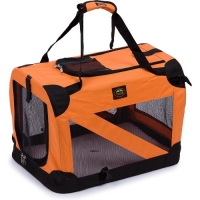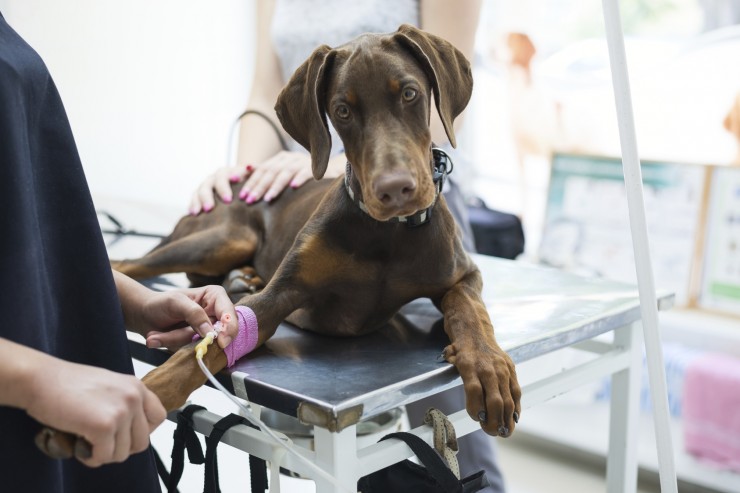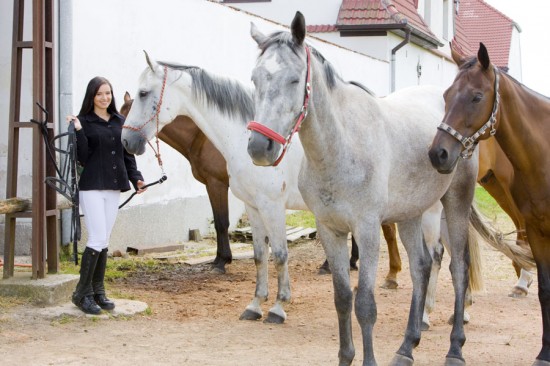So you have a new puppy at home and you're very excited about it. You're hugging him all the time. Your friends and family are always coming over to see him. It's a wonderful time and you're very happy about the new addition to your home. You're soon learning that he's a handful and looking into the best ways to train him. Someone you know and trust has recommended crate training but you don't really know anything about it. Is this close to what's happening with you?
Most people relate having done something wrong with being confined. We've all heard the expression, "Don't do the crime if you can't do the time". If you relate this way of thinking to your puppy it's no wonder that your first reaction to crate training would be a negative one. Of course you'll come running with fists in the air at the mere mention of your cute little puppy in jail. If you had this initial reaction and you're willing to look past it to examine how it works, why it works and all the benefits it provides, I think you'll be pleasantly surprised. Dog Crates are a tool and just like any tool it can be used for good or for harm. A hammer can be used to inflict pain or to build a house. It's up to the person holding it.
Dog Crates should NEVER be used as a punishment and there are recommended lengths of time your dog can be left in his crate based on age.
Crate training has really taken off in the last decade as a fantastic way to teach your puppy. It uses a dog's natural instincts as a den animal. This means that your dog can easily be shown to think of the crate as his den. Of course you need to learn how to show him this. With any training there's one thing you must do that will be the difference between success and failure. It's CONSISTENCY. If you learn what you need to do in your training and you're consistent, you'll see great results.
Do you know all the uses of a dog crate?
- Housebreaking - Puppies have a natural instinct to not soil in their den or crate.
- Deterring destructive habits - An untrained puppy should never be allowed to roam free in the house. Leaving him unsupervised in your home puts him and your possessions at risk.
- Give your puppy his own space - A puppy will easily and happily learn that the crate belongs to him. Whenever he's in the mood, he can go into his crate on his own for some privacy.
- Travel safely - Your puppy could interfere with your driving. Crating your puppy allows you to open the windows for ventilation without the risk of him jumping out.
- A time out area - A puppy is often overly rambunctious. If a long walk or a play session doesn't calm him down, you may choose to redirect his energy by giving him a toy and puppy crate time out for a short while.
- Flexibility of location - The crate can be put in any room. It's recommended that you have it in a room with the most family activity. That will allow your dog to see what's going on around him and feel your presence nearby.
- A safe place to recuperate - When your puppy or dog needs to be confined because of illness or injury.

 Getting A Rabbit Run - What To Consider
Getting A Rabbit Run - What To Consider
 Collapsible Dog Crates And Other Pet Carriers For Air Travel
Collapsible Dog Crates And Other Pet Carriers For Air Travel
 Helping Your Dog To Recover More Quickly After Surgery
Helping Your Dog To Recover More Quickly After Surgery
 Transporting New Fish Safely And Comfortably
Transporting New Fish Safely And Comfortably
 5 Ways To Raise Funds For Your Dog’s Veterinary Care When You Can’t Afford It
5 Ways To Raise Funds For Your Dog’s Veterinary Care When You Can’t Afford It
 Common Dog Illnesses And How To Spot Them
Common Dog Illnesses And How To Spot Them
 Horses - Which Breed Is Best For Me?
Horses - Which Br
Horses - Which Breed Is Best For Me?
Horses - Which Br
 What Type Of Sighthound Is Right For You?
What Type Of Sigh
What Type Of Sighthound Is Right For You?
What Type Of Sigh
 Five Universal Personality Traits Of The English Bulldog
Five Universal Pe
Five Universal Personality Traits Of The English Bulldog
Five Universal Pe
 How You Can Help Your Dog To Give Birth
How You Can Help
How You Can Help Your Dog To Give Birth
How You Can Help
 Why Cats Need To Mark Their Territory
Why Cats Need To
Why Cats Need To Mark Their Territory
Why Cats Need To